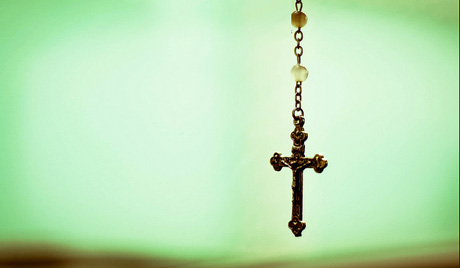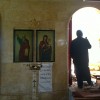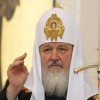The world is becoming less religious, sociologists for the Gallup International Association say. They have conducted a poll in 59 countries to find out the most religious and the least devout countries. The survey shows a decline in religiosity in Russia in the past few years.

Poll results show that more than half of the world’s population, nearly 59%, call themselves religious. Meanwhile, every fifth person believes in God but do not identify themselves with anyparticular faith tradition or denomination .Every eighth describes himself an atheist. The most convinced atheists were found in China (47%), Japan (31%), as well as in the Czech Republic, France, South Korea, Germany, the Netherlands, Austria, Iceland, Australia and Ireland. The countries where most people self-identified as religious were Ghana (96 %), Nigeria (93 %), Macedonia (90 %), Romania, Iraq, Kenya, Peru and Brazil. Average religiosity in the 57 countries included in the poll was 59 percent, a decline of 9 points since 2005, it said.
Some Russian experts have opposed the results of the Gallup survey. Sociologists in Russia say that the religiosity index in the country has recently dropped only by 2 %, with the number of people identifying themselves as atheists rising by 2%. 55% of respondents confirmed their adherence to a particular faith tradition, while 26% describe themselves as ‘not religious’. Only 6% confirmed they were atheists, and 13% others declined to answer definitely.
Sergei Popov, head of State Duma Committee on Public Associations and Religious Organizations, says that the results of the Gallup poll do not reflect reality and believes that Russia will remain a country with a high level of religiosity:
“Religion and religiosity is what the Russian statehood has historically relied on. Although Russia is a secular state by the Constitution, religion is crucial in terms of both peace in the country and the national unity. Religion is a very strong point which cannot be ignored. Historically, all nations inhabiting Russia were close to religion. I am sure that Russia will grow even more religious with time.”
Another poll conducted by US experts at the Pew Research Center shows that young Muslims living in Russia are more religious than older people. This is what makes Russian Muslims different from those residing in the Middle East and in North Africa. Generally speaking, only half of Muslims living in the former Soviet republics say that religion has a great impact on their lives, while over 60% of the population in Arab states and 80% of the African population are religious. First Deputy Chairman of the Central Spiritual Board of Russian Muslims mufti Albir Krganov told the VoR that the number of religious Muslims has not declined in Russia, simply the youth has become more religiously active:
“The number of young Muslims attending mosque services has increased. And this is not just an attempt to follow the fashion but soul craving. Older people also identify themselves as Muslims, and even if they do not observe some rites, they still say they are religious.”
Atheism in the Soviet Union should be viewed as one of the reasons why older people rarely go to mosques, Albir Krganov said.
Source: Voice of Russia
















